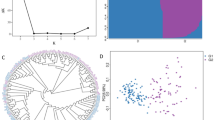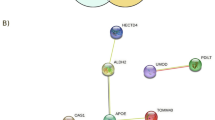Abstract
THE genus Gerbillus comprises about thirty species which are distributed throughout Africa. G. pyramidum or the greater Egyptian gerbil, as it is also called, is found in Arabia, across North Africa to Morocco on the west and down eastern Africa through the Anglo-Egyptian Sudan to Kenya and Tanganyika1.
This is a preview of subscription content, access via your institution
Access options
Subscribe to this journal
Receive 51 print issues and online access
$199.00 per year
only $3.90 per issue
Buy this article
- Purchase on SpringerLink
- Instant access to full article PDF
Prices may be subject to local taxes which are calculated during checkout
Similar content being viewed by others
References
Traité de Zoologie, 17, Fasc. 2 (Masson, Paris, 1955).
Robinson, P. F., Science, 130, 502 (1959).
Schmidt-Nielson, K., and Schmidt-Nielsen, B., Physiol. Rev., 32, 1935 (1952).
Herrington, L. P., Amer. J. Physiol., 129, 123 (1940).
Prouty, L. R., Fed. Proc., 8, 128 (1949).
Robinson, K., and Lee, D. H. K., Proc. Roy. Soc. Queensland, 53, 159 (1941).
Scholander, P. F., Hock, R., Walters, V., Johnson, F., and Irving, L., Biol. Bull., 99, 237 (1950).
Author information
Authors and Affiliations
Rights and permissions
About this article
Cite this article
ROBINSON, P., HENRICKSON, R. Metabolism of Gerbillus pyramidum . Nature 190, 637–638 (1961). https://doi.org/10.1038/190637b0
Issue date:
DOI: https://doi.org/10.1038/190637b0
This article is cited by
-
Adaptive variations in heat production within Gerbils (genus Gerbillus) from different habitats
Oecologia (1984)
-
Abh�ngigkeit der Thermoneutralit�tszone der Maus vom Ern�hrungszustand
Die Naturwissenschaften (1962)



